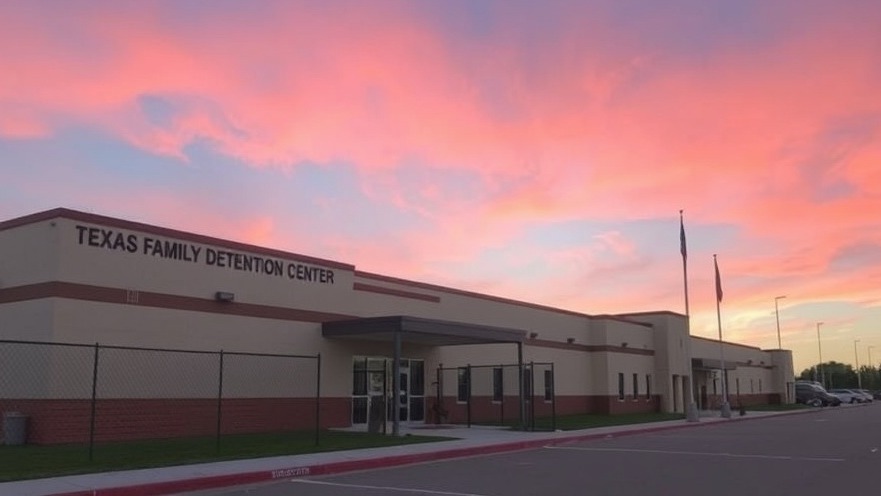
Inhumane Conditions in Texas Family Detention Centers
As the spotlight shifts to the treatment of immigrant families in Texas, harrowing testimonies have emerged from detention centers revealing alarming conditions that challenge the human spirit. Adults reportedly fighting children for access to clean water and toddlers left without medical care paint a disturbing picture of life inside these facilities. Recent motion filings by immigrant advocacy groups, such as RAICES and the National Center for Youth Law, detail these experiences, leading to renewed calls for scrutiny and reform.
A Struggle for Basic Necessities
Families detained in facilities like the Dilley and Karnes centers have provided firsthand accounts showcasing a dire struggle for basic needs. One mother described the necessity of using unfiltered tap water to prepare formula for her infant, resulting in her child's serious illness. Meanwhile, a 16-year-old girl recounted how families resorted to scrambling over one another for limited water supplies, revealing a competitive fight for something most people take for granted. These testimonials are not just anecdotal; they reflect systemic issues within the detention centers that the Flores Settlement Agreement was designed to address.
The Flores Settlement and Its Implications
Established in the 1990s, the Flores Settlement Agreement mandates that immigrant children in custody be treated with dignity, including provision for safe and sanitary living conditions. With the current administration challenging this settlement, advocates argue that the urgency to uphold it is critical. Mishan Wroe of the National Center for Youth Law emphasizes that defending this agreement directly impacts the treatment of families seeking asylum in the U.S.
Documenting Human Rights Violations
Despite the disheartening nature of these accounts, the advocacy groups' efforts shine a light on the conditions within the detention centers. The lawsuit aims not only to document these injustices but also to push for accountability against facilities operated by CoreCivic and the Geo Group. Sergio Perez, from the Center for Human Rights and Constitutional Law, highlighted that the Flores Settlement allows for oversight that could be lost if the settlement is terminated. This legal framework is a crucial safeguard against the violation of rights experienced by immigrant families.
Public Awareness and Advocacy
As the narrative unfolds, raising public awareness becomes an indispensable part of the fight for these families. Communities across Texas are encouraged to engage in discussions about the conditions in detention centers, advocating for reform and upholding the standards set by the Flores Settlement. Involving local and state leaders, as well as civil rights organizations, plays a significant role in applying pressure to improve human rights practices in Texas.
Future Implications: What Lies Ahead?
The testimonies of families detained in Texas raise crucial questions about the future of immigration policy in the United States. If current legal agreements like the Flores Settlement are eroded or eliminated, the risks to vulnerable populations may increase dramatically. Understanding these implications allows for better-informed discussions on immigration reform and the ethical treatment of asylum seekers.
The heartbreaking realities faced by these families should not be ignored. The call for action is clear: we must advocate for humane treatment and access to essential needs for those seeking refuge in the U.S. History has shown that when communities unite for justice, change is possible. It’s time for Texans to come together, raise their voices, and ensure that the values of fairness and dignity are upheld for everyone in our state.
 Add Element
Add Element  Add Row
Add Row 



Write A Comment